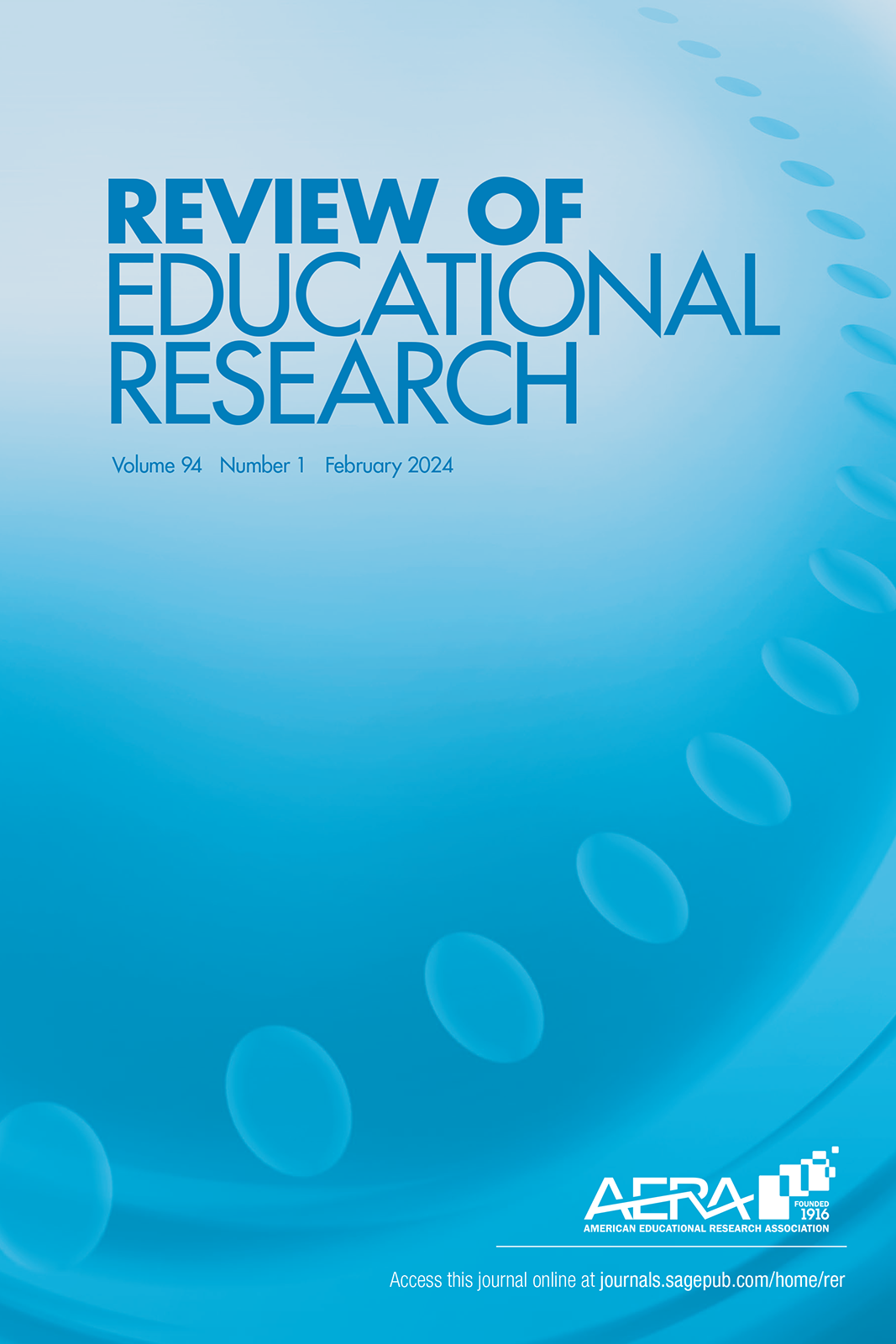数学学习障碍个体与非数学学习障碍个体数学和认知技能差异的meta分析
IF 7.4
1区 教育学
Q1 EDUCATION & EDUCATIONAL RESEARCH
引用次数: 2
摘要
数学学习障碍(MLD)的类型是非常异质的。与典型发育(TD)的样本相比,MLD样本的数学和几种认知技能得分较低,但这些研究在样本选择上各不相同,很难概括结论。此外,许多研究只调查了一种或几种认知技能,因此很难比较它们的相对差异。进行当前的荟萃分析(k=145)是为了(a)对与MLD相关的数学和认知技能进行最新的概述,以及(b)调查选择标准如何影响有关该主题的结论。结果表明,与TD患者相比,MLD患者不仅在数学方面,而且在数字感、工作记忆和快速自动命名方面的得分都较低,通常与定义MLD的标准无关。没有检测到将MLD较严重、持续或特定的人与MLD较轻的人区分开来的特征。本文章由计算机程序翻译,如有差异,请以英文原文为准。
A Meta-Analysis on the Differences in Mathematical and Cognitive Skills Between Individuals With and Without Mathematical Learning Disabilities
Types of mathematical learning disability (MLD) are very heterogeneous. Lower scores on mathematics and several cognitive skills have been revealed in samples with MLD compared with those with typical development (TD), but these studies vary in sample selection, making it difficult to generalize conclusions. Furthermore, many studies have investigated only one or few cognitive skills, making it difficult to compare their relative discrepancies. The current meta-analysis (k = 145) was conducted to (a) give a state-of-the-art overview of the mathematical and cognitive skills associated with MLD and (b) investigate how selection criteria influence conclusions regarding this topic. Results indicated that people with MLD display lower scores not only on mathematics but also on number sense, working memory, and rapid automatized naming compared with those with TD, in general independently of the criteria used to define MLD. A profile that distinguishes people with more serious, persistent, or specific MLD from those with less severe MLD was not detected.
求助全文
通过发布文献求助,成功后即可免费获取论文全文。
去求助
来源期刊

Review of Educational Research
EDUCATION & EDUCATIONAL RESEARCH-
CiteScore
24.10
自引率
2.70%
发文量
28
期刊介绍:
The Review of Educational Research (RER), a quarterly publication initiated in 1931 with approximately 640 pages per volume year, is dedicated to presenting critical, integrative reviews of research literature relevant to education. These reviews encompass conceptualizations, interpretations, and syntheses of scholarly work across fields broadly pertinent to education and educational research. Welcoming submissions from any discipline, RER encourages research reviews in psychology, sociology, history, philosophy, political science, economics, computer science, statistics, anthropology, and biology, provided the review addresses educational issues. While original empirical research is not published independently, RER incorporates it within broader integrative reviews. The journal may occasionally feature solicited, rigorously refereed analytic reviews of special topics, especially from disciplines underrepresented in educational research.
 求助内容:
求助内容: 应助结果提醒方式:
应助结果提醒方式:


